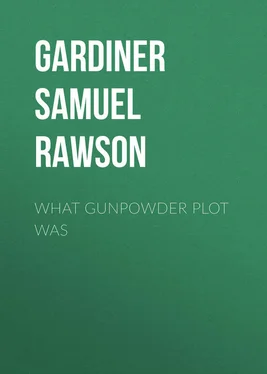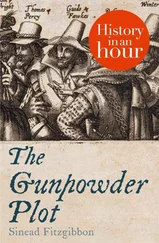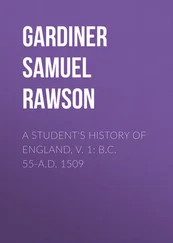Samuel Gardiner - What Gunpowder Plot Was
Здесь есть возможность читать онлайн «Samuel Gardiner - What Gunpowder Plot Was» — ознакомительный отрывок электронной книги совершенно бесплатно, а после прочтения отрывка купить полную версию. В некоторых случаях можно слушать аудио, скачать через торрент в формате fb2 и присутствует краткое содержание. Жанр: foreign_antique, foreign_prose, на английском языке. Описание произведения, (предисловие) а так же отзывы посетителей доступны на портале библиотеки ЛибКат.
- Название:What Gunpowder Plot Was
- Автор:
- Жанр:
- Год:неизвестен
- ISBN:нет данных
- Рейтинг книги:3 / 5. Голосов: 1
-
Избранное:Добавить в избранное
- Отзывы:
-
Ваша оценка:
- 60
- 1
- 2
- 3
- 4
- 5
What Gunpowder Plot Was: краткое содержание, описание и аннотация
Предлагаем к чтению аннотацию, описание, краткое содержание или предисловие (зависит от того, что написал сам автор книги «What Gunpowder Plot Was»). Если вы не нашли необходимую информацию о книге — напишите в комментариях, мы постараемся отыскать её.
What Gunpowder Plot Was — читать онлайн ознакомительный отрывок
Ниже представлен текст книги, разбитый по страницам. Система сохранения места последней прочитанной страницы, позволяет с удобством читать онлайн бесплатно книгу «What Gunpowder Plot Was», без необходимости каждый раз заново искать на чём Вы остановились. Поставьте закладку, и сможете в любой момент перейти на страницу, на которой закончили чтение.
Интервал:
Закладка:
The first part of the examination turns upon Fawkes’s movements abroad, showing that the Government had already acquired information that he had been beyond sea. Fawkes showed no reluctance to speak of his own proceedings in the Low Countries, or to give the names of persons he had met there, and who were beyond the reach of his examiners. As to his movements after his return to England he was explicit enough so far as he was himself concerned, and also about Percy, whose servant he professed himself to be, and whose connection with the hiring of the house could not be concealed. Fawkes stated that after coming back to England he ‘came to the lodging near the Upper House of Parliament,’ and ‘that Percy hired the house of Whynniard for 12 l. rent, about a year and a half ago’; that his master, before his own going abroad, i. e. , before Easter, 1605, ‘lay in the house about three or four times.’ Further, he confessed ‘that about Christmas last,’ i. e. , Christmas, 1604, ‘he brought in the night time gunpowder [to the cellar under the Upper House of Parliament.]’ 16 16 The words between brackets are inserted in another hand.
Afterwards he told how he covered the powder with faggots, intending to blow up the King and the Lords; and, being pressed how he knew that the King would be in the House on the 5th, said he knew it only from general report and by the making ready of the King’s barge; but he would have ‘blown up the Upper House whensoever the King was there.’ He further acknowledged that there was more than one person concerned in the conspiracy, and said he himself had promised not to reveal it, but denied that he had taken the sacrament on his promise. Where the promise was given he could not remember, except that it was in England. He refused to accuse his partners, saying that he himself had provided the powder, and defrayed the cost of his journey beyond sea, which was only undertaken ‘to see the country, and to pass away the time.’ When he went, he locked up the powder and took the key with him, and ‘one Gibbons’ wife, who dwells thereby, had the charge of the residue of the house.’
Such is that part of the story told by Fawkes which concerns us at present. Of course there are discrepancies enough with other statements given later on, and Father Gerard makes the most of them. What he does not observe is that it is in the nature of the case that these discrepancies should exist. It is obvious that Fawkes, who, as subsequent experience shows, was no coward, had made up his mind to shield as far as possible his confederates, and to take the whole of the blame upon himself. He says, for instance, that Percy had only lain in the house for three or four days before Easter, 1605; a statement, as subsequent evidence proved, quite untrue; he pretends not to know, except from rumour and the preparations of the barge, that the King was coming to the House of Lords on the 5th, a statement almost certainly untrue. In order not to criminate others, and especially any priest, he denies having taken the Sacrament on his promise, which is also untrue. What is more noticeable is that he makes no mention of the mine, about which so much was afterwards heard, evidently – so at least I read the evidence – because he did not wish to bring upon the stage those who had worked at it. If indeed the passage which I have placed in square brackets be accepted as evidence, Fawkes did more than keep silence upon the mine. He must have made a positive assertion, soon afterwards found to be untrue, that the cellar was hired several months before it really was. 17 17 It was not actually hired till about Lady Day, 1605.
This passage is, however, inserted in a different hand from the rest of the document. My own belief is that it gives a correct account of a statement made by the prisoner, but omitted by the clerk who made the copy for Coke, and inserted by some other person. Nobody that I can think of had the slightest interest in adding the words, whilst they are just what Fawkes might be expected to say if he wanted to lead his examiners off the scent. At all events, even if these words be left out of account, it must be admitted that Fawkes said nothing about the existence of a mine.
Though Fawkes kept silence as to the mine, he did not keep silence on the desperate character of the work on which he had been engaged. “And,” runs the record, “he confesseth that when the King had come to the Parliament House this present day, and the Upper House had been sitting, he meant to have fired the match and have fled for his own safety before the powder had taken fire, and confesseth that if he had not been apprehended this last night, he had blown up the Upper House, when the King, Lords, Bishops, and others had been there, and saith that he spake for [and provided] 18 18 Inserted in the same hand as that in which the words about the cellar were written. It will be observed that the insertion cannot serve any one’s purpose.
those bars and crows of iron, some in one place, some in another, in London, lest it should be suspected, and saith that he had some of them in or about Gracious Street.” 19 19 Gracechurch Street.
After this it will little avail Father Gerard to produce arguments in support of the proposition that the story of the plot was contrived by the Government as long as this burning record is allowed to stand. Fawkes here clearly takes the whole terrible design, with the exception of the incident of the mine, on his own shoulders. He may have lied to save his friends; he certainly would not lie to save Salisbury.
So far, however, there is no proof that Salisbury was not long ago cognisant of the plot through one of the active conspirators. Yet, in that case, it might be supposed that the accounts that he gave of his discoveries would be less dependent than they were on the partial revelations which came in day by day. There is, however, no hint of superior knowledge in the draft of a letter intended to be sent by Salisbury to Sir Thomas Parry, the English ambassador in Paris, and dated on November 6, the day after that on which Fawkes’s first examination was taken:
Sir Thomas Parry, it hath pleased Almighty God, out of his singular goodness, to bring to light the most cruel and detestable practice against the person of his Majesty and the whole estate of this realm, that ever was conceived by the heart of man at any time or in any place whatsoever, by which practice there was intended not only the extirpation of the King’s Majesty and his issue royal, but the whole subversion and downfal of this estate, the plot being to take away at an instant the King, Queen, Prince, Council, Nobility, Clergy, Judges, and the principal gentlemen of this realm, as they should have been yesterday altogether assembled at the Parliament House, in Westminster, the 5th of November, being Tuesday. The means how to have compassed so great an act, was not to be performed by strength of men or outward violence, for that might have be espied and prevented in time; but by a secret conveying of a great quantity of gunpowder into a vault under the Upper House of Parliament, and so to have blown up all at a clap, if God out of his mercy and his just revenge against so great an abomination had not destined it to be discovered, though very miraculously even some twelve hours before the matter should have been put into execution. The person that was the principal undertaker of it, is one Johnson, a Yorkshire man, and servant to one Thomas Percy, a gentleman pensioner to his Majesty, and a near kinsman and a special confidant to the Earl of Northumberland. This Percy had about a year and a half ago hired a part of Whynniard’s house in the old palace, from whence he had access into this vault to lay his wood and coal, and as it seemeth now, taken this place of purpose to work some mischief in a fit time. He is a Papist by profession, and so is this his man Johnson, a desperate fellow, whom of late years he took into his service.
Читать дальшеИнтервал:
Закладка:
Похожие книги на «What Gunpowder Plot Was»
Представляем Вашему вниманию похожие книги на «What Gunpowder Plot Was» списком для выбора. Мы отобрали схожую по названию и смыслу литературу в надежде предоставить читателям больше вариантов отыскать новые, интересные, ещё непрочитанные произведения.
Обсуждение, отзывы о книге «What Gunpowder Plot Was» и просто собственные мнения читателей. Оставьте ваши комментарии, напишите, что Вы думаете о произведении, его смысле или главных героях. Укажите что конкретно понравилось, а что нет, и почему Вы так считаете.












